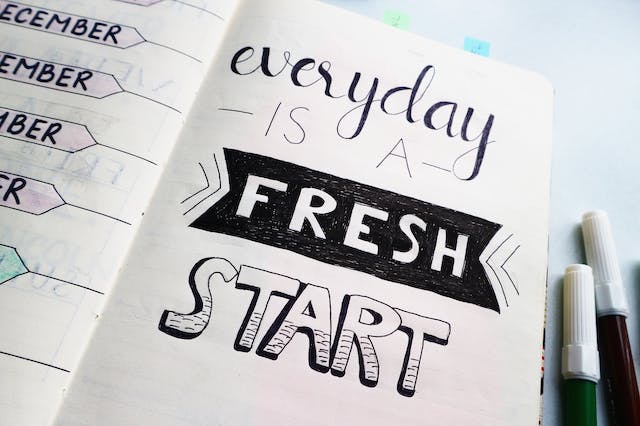
How to Get Through Difficult Times by Accepting Change
How to Get Through Difficult Times by Accepting Change
Today’s world jumps from one crisis to another like there is no tomorrow. The society we live in is volatile. How to Get Through Difficult Times by Accepting Change
First, there was the global pandemic that gripped the human population. Then there’s the economic downturn, which has tested the resilience of many economies across the globe.
The COVID-19 pandemic has caused people to lose their jobs and their homes, their loved ones, and their entire way of life. These hardships have pushed many people into a state of depression.
Many have lost their self-confidence and believe that they will never be able to overcome the situation. They cannot see the bigger picture and don’t know how to push on despite all odds.
How can you get through these difficult times by accepting change? Consider these:
How to Get Through Difficult Times by Accepting Change

1. Accept difficult situations by observing.
When dealing with difficult situations, you must refrain from making judgments or rushing to conclusions. Instead, study the situation before coming to any conclusion.
- If you are in a situation that causes you distress or annoyance, you should pause and reflect to figure out what is causing the pain or problem. Once you have identified the cause of the grief, it is essential to reflect on how you can move forward.
- Ask yourself questions such as, “What is the worst thing that could happen?” and “What is the best thing that could happen?” These questions help you think clearly and logically about your situation, so you don’t feel stressed.
How to Get Through Difficult Times by Accepting Change

2. Accept trying times by remaining positive.
An optimistic attitude will help you bounce back from life’s obstacles and return to the center much more quickly than if you dwell on your problems or try to control the uncontrollable.
- People with a sense of optimism cope better with hard times and experience fewer health problems.
- On the other hand, people who dwell on their problems are less optimistic and likely to suffer from more health problems.

How to Get Through Difficult Times by Accepting Change
3. Accept difficult times by controlling only the things within your sphere of control.
Accepting difficult times is difficult for some people, but remember that you only have control over a few things.
- For example, your finances may be tight because of the rising costs of goods. You can’t control things like inflation or rising costs.
- However, you can control how much you spend at the grocery store, what entertainment you choose, and whether you work nights or weekends. You can also use budget plans that will help you see areas where you can spend less.
- Making small changes in your spending can help boost your finances. You can take pride in the fact that you’re taking charge of your life despite the outside factors you can’t control.

4. When times are hard, look to your past to cope with the present.
When times are hard, we can sometimes feel powerless and hopeless. However, tough times are often temporary, and in time, things will turn around.
- We can find comfort and strength by focusing on the positive memories of past difficult times. We can reflect on what we have learned from the past and how we’ve coped. We can also remember how far we’ve come and grown during difficult times.
- When we focus on our positive memories and our progress, we can make today a little easier to get through.
How to Get Through Difficult Times by Accepting Change

5. Difficult times can produce good things.
When things don’t go as expected, it can be challenging. However, it’s important to remember that sometimes things don’t go according to plan for good reason.
- You can grow when life is hard. Sometimes the difficult parts of life can bear amazing fruit. Adversity can help you succeed in many ways including developing your character and stretching your abilities.
To accept difficult times, you must remember that life is full of ups and downs and times of hardship.
However, like all things, this too shall pass. Don’t dwell on the things that are out of your control, but try to improve in areas you can control.
Remember that adversity can produce amazing things in your life.
Get Our 3 Week 3 eBook Series
> Learn to Make Space for a Positive Mindset
> Discover How to Live an Awaken Life
> Develop Positive Relationships
How to Get Through Difficult Times by Accepting Change
What’s your level of emotional intelligence?
Find out if your emotional intelligence is helping or hindering your growth! .

I am a Board Certified Life Coach, a Board Certified Health Coach, and a teacher of Mindfulness Living who helps people unlock their potential and live life on Purpose
How to Get Through Difficult Times by Accepting Change
https://www.linkedin.com/pulse/16-steps-accept-change-moving-life-suryapal-singh- https://www.wernative.org/articles/how-to-accept-change https://www.intelligentchange.com/blogs/read/how-to-embrace-change-in-your-life https://www.shortform.com/blog/accepting-change/ https://www.connectionsacademy.com/support/resources/article/6-ways-to-help-children-embrace-change/ https://www.forbes.com/sites/lucianapaulise/2022/10/20/why-is-change-so-difficult-to-manage-and-accept/



























